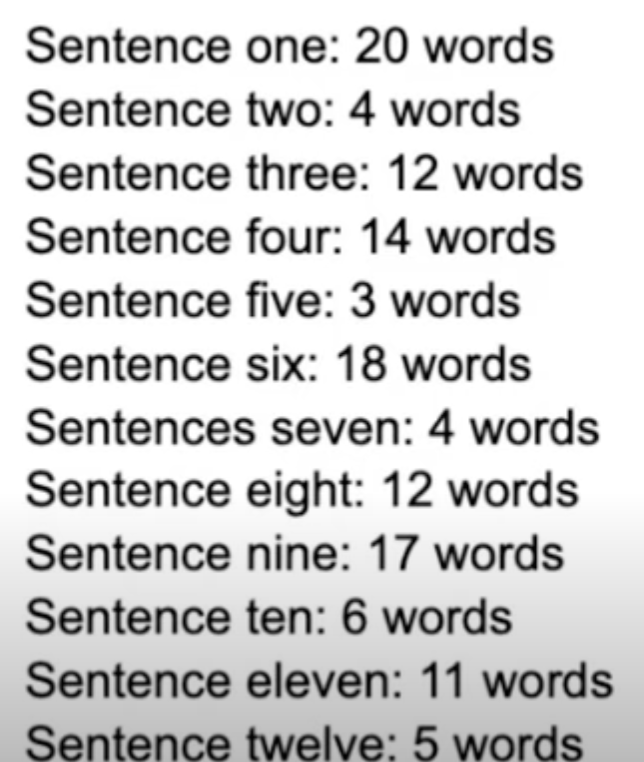 When reading a favorite story, take some time to notice the length of the sentences you are reading. Writers often use a variety of sentence lengths to create a rhythm. Using long sentences with lots of details, short and sweet to the point sentences, and combined with mid length sentences will make your story flow.
When reading a favorite story, take some time to notice the length of the sentences you are reading. Writers often use a variety of sentence lengths to create a rhythm. Using long sentences with lots of details, short and sweet to the point sentences, and combined with mid length sentences will make your story flow.
Spark your thinking!
1. Set up your language arts mini spark recording page: #69: ULTIMATE Writing Challenge
2. Watch this video. Write 3 notes on your recording about what will be easy about this challenge and what will be hard.
3. On your recording page complete the 12 sentence story challenge.

4. Share your language arts mini spark recording page with your teacher/EY coordinator.
Post adapted from http://briantolentino.com/



 We celebrate national opposite day on January 25th. We don’t have to only celebrate opposite day on January 25th. Check out some of these resources to celebrate any day of the year!
We celebrate national opposite day on January 25th. We don’t have to only celebrate opposite day on January 25th. Check out some of these resources to celebrate any day of the year!